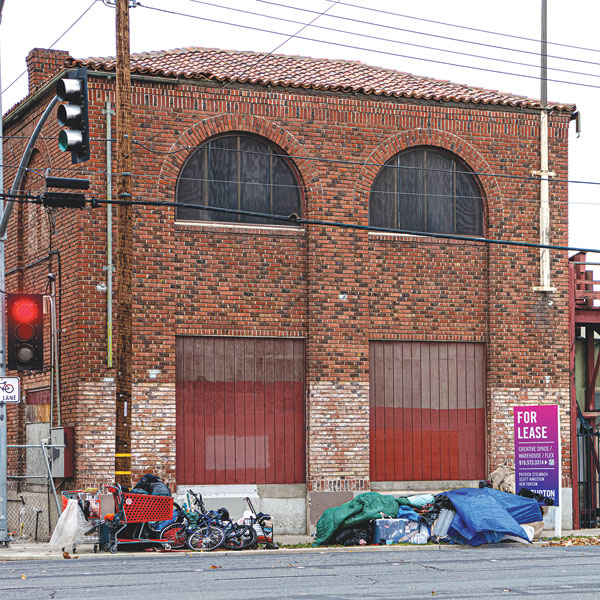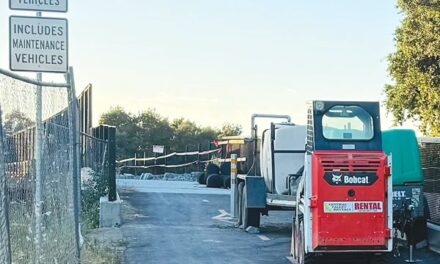People file lawsuits for money, publicity or vengeance. District Attorney Thien Ho is different. He wants documents.
Ho’s lawsuit against city officials over negligent management of homelessness brought relief to residents and outrage from Mayor Darrell Steinberg. A key target of Ho’s litigation was overlooked: pretrial discovery.
Ho wants the city to enforce local ordinances and state laws and clean up the streets. To understand why the city failed, he needs to see private emails, text messages and memos that guided city officials to their acceptance of tent camps and drug markets.
The city wants the suit dismissed.

Ho knows the value of storytelling. A champion prosecutor, he’s good at standing before a jury and weaving tales of nefarious behavior. He’s so skilled he rarely reads from notes. But to build a story, he needs proof.
Ho is preparing criminal complaints against the city’s toxic dump homeless camp on Colfax Street. But his first lawsuit against the city is a civil matter. For now, the district attorney doesn’t even want monetary damages.
Ho’s initial goal is pretrial discovery and exposure of backroom deals that may involve the mayor and councilmembers, city attorney and city manager. Ho wants to know how the city established a hands-off approach to crimes committed by unhoused people.
City Hall fears the district attorney. City officials are fighting to keep their secrets away from the courtroom and public. Their objections must fail. In lawsuits, document discovery is an essential pathway to truth.
The city may claim its incriminating documents are protected from prying eyes by attorney-client privilege. That won’t stop Ho.
Knowing Ho, he’s already far ahead of the city. Attorney-client privilege is not sacrosanct. It’s easily pierced when misapplied for dishonest purposes.
Given the dismal record of City Attorney Susana Alcala Wood, smart money is on Ho. With Steinberg at quarterback, the city always plays from behind.
There may be nothing much to see. It’s possible the city destroyed incriminating emails and texts. Or perhaps the material never existed. Perhaps the city’s decision to grant unhoused people immunity from prosecution was devised verbally without details written down.
Secret meetings or serial discussions by more than four City Council members (or their staff) violate California’s open-meeting law, the Ralph M. Brown Act. Despite this obstacle, criminal meetings at City Hall aren’t difficult to imagine.
At some level, written directives about local homeless camp immunity must exist. Police and code enforcement personnel don’t function on whispered instructions passed down the line. They need policies, memos, orders.
The city’s excuses are not secret. City officials respond to public complaints about homelessness by saying, “There’s nothing we can do.”
When asked why, they misstate a federal appellate court decision called Martin v. Boise, which established protocols for moving unhoused people off public property.
“Moving people with no place for them to go just shuffles them from one part of the city to another,” Steinberg says. He ignores legal options for clearing camps.
City authorities say citing or arresting homeless people for minor crimes is pointless. Homeless people don’t pay fines or make court appearances.
The city’s solution? Suspend enforcement and watch the homeless population balloon from 2,700 seven years ago to 10,000.
I don’t know what Ho will dig up, but he’s on the right track. The city’s eagerness to stop him proves the district attorney is making the right people nervous.
The harder City Hall fights to prevent disclosure of its documents the louder residents must scream for transparency.
The city should welcome public examination of its backroom discussions and deliberations about homelessness. What’s there to hide?
Decisions made by the mayor and City Council, in public or private, inevitably impact one constituency: city residents.
For nearly a decade, people in Sacramento watched their sidewalks and parks get fouled by tents, junk, human waste and needles. Residents endured threats and crime. They learned from police and code enforcement nothing can be done.
Somewhere there’s a paper trail. And a district attorney determined to follow it.
R.E. Graswich can be reached at regraswich@icloud.com. Follow us at Facebook and Instagram: @insidesacramento.
















